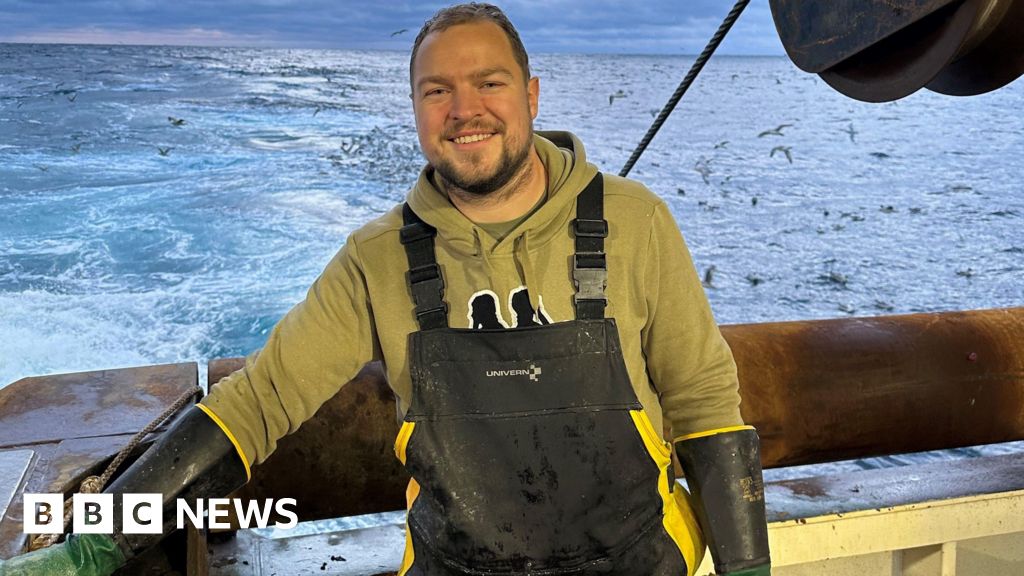ARTICLE AD BOX
By Esyllt Carr
Business reporter, BBC News
image sourceGetty Images
image captionUntangling property and pensions assets without legal advice risks ending up costing both parties moreBill and Melinda Gates may be among the wealthiest couples to file for divorce this year - but they aren't the only ones trying to figure out how to split their assets and go their separate ways after Covid.
Yet while they may not struggle to pay their legal bills, for many the financial cost of splitting-up can be a huge barrier.
In 2019, more than 100,000 UK couples got divorced - and since then, the pandemic has put many more relationships under tremendous strain.
A quarter of people say their relationship with their spouse or partner deteriorated during Covid, according to a recent survey of 70,000 participants by University College London.
This may be just the tip of the iceberg. UK charity Citizens Advice says the divorce section of its website was visited 419,359 times between July 2020 and July 2021 - 14% higher than the previous year.
Once lockdown restrictions eased, it also saw a spike in views of its divorce advice pages - in particular on how to pay for it.
image sourceGetty Images
image captionBill and Melinda Gates, who together run one of world's biggest charitable foundations, are divorcing after 27 years of marriageFinancial hurdles
While the final cost of a divorce can vary wildly, even getting started is prohibitive for many. The application fee is £550 - which everyone getting a divorce must pay.
"We spoke to people having to save for months or years to find £550," says Prof Liz Trinder, who led research for The Nuffield Foundation on divorce costs.
This initial cost amounts to a tax on people when they are "at their most financially vulnerable", says Prof Trinder who believes the actual costs are lower than £550 and will fall as the process becomes digitised.
Although there is some support available for those on low incomes or benefits, the worry is for most the fear of rising costs will prevent them from getting appropriate advice.
"So many people are terrified of stepping into a solicitor's office, because they are worried about the cost," says Mena Ruparel, who chairs the Law Society's family committee.
image sourceMena Ruparel
image captionMena Ruparel, who chairs the Law Society's family committee"Solicitors charge in six-minute increments - so just sending a few emails and receiving replies can quickly see costs mount."
But not speaking to a solicitor can end up costing more, says Ms Ruparel, if people don't get advice on how to avoid court by using mediation and arbitration - or receive a fair settlement, for instance.
Women going through a split are often left in a weak financial position, as they are more likely to already be earning less and with lower savings and pensions.
Rita, who did not want to be named to protect her identity, was in her 50s when she separated from her husband of 30 years after giving up work to care for their children.
She saw solicitors as "an unnecessary expense" and instead focused on keeping hold of the marital home, without accessing her ex-husband's pension.
"Career-wise I'm about 20 years behind him, I want a fair outcome."
image sourceGetty Images
image captionThe Divorce, Dissolution and Separation Act will introduce so-called "no fault" divorces in the UKBut Martin Bell from the Money and Pensions Service, who advised Rita against going it alone without a solicitor, says ignoring pension savings often leaves women with a poorer deal.
Many women take career breaks to prioritise their family and forego pension opportunities in the process, and this needs to be taken into account, he says.
When people are distressed they "often just want to get it over with", and that can cost them money, he adds.
DIY divorces
Nevertheless, more are deciding to do it themselves. A survey of 1,000 divorcees for the group Resolution, which campaigns for family law to be more easily available found 57% of those who had divorced in the last five years had sought little or no legal help.
While going it alone can keep costs down, lawyers say it's only suitable for couples who have don't have assets to divide - because issues such as pensions, and arrangements about children and property can be much more complex.
image sourceGetty Images
image captionIn 2019, more than 100,000 UK couples got divorcedResolution, which represents 6,500 family lawyers, wants legal aid to be reintroduced for everyone seeking initial advice about divorce.
"We know that access to early legal advice helps couples make the best decisions about how they will separate," says Juliet Harvey, the national chair of Resolution.
The Ministry of Justice says it is spending millions to help couples avoid costly litigation, and that legal aid for mediation is still available to those who cannot afford it. It adds that charging those who can pay means "the justice system runs effectively, while cutting the cost to the taxpayer".
Louise, who did not want to be named to protect her identity, felt she had no option but to represent herself when her ex-husband emptied their shared bank accounts and sold their possessions after she left him.
"I spoke to a solicitor and quickly saw how the costs could mount up," she says. With children to support and no access to funds she worried she'd spend her only potential asset - the family home - on legal fees, so represented herself in court.
"I became really savvy about the process," she says, but acknowledges the eight years it took to finalise the divorce were gruelling. She still hasn't received the maintenance payments her ex-husband was ordered to pay. "I've written it off, " she adds.
Author Elizabeth MacBride, who has written about her own split, says even though her divorce was expensive and cost her a Silicon Valley job, she wouldn't have felt confident taking the DIY option. Gaining primary custody of her two daughters was her main aim and she felt she needed a lawyer for this.
"To go it alone would have been hard. Your fear is that your partner is going to 'take it out' on your children."
image sourceLucy Davis
image captionLucy Davis runs a network of support groups for people going through divorceAn evolving process
It's in these more difficult cases, where amicable agreements can't be reached, that costs can quickly rise.
Lucy Davis who runs The Divorce Club, a UK network of support groups, says many people she encounters are going through acrimonious separations, where costs can "run into the tens of thousands".
She says the financial pressure can lead to people taking out loans or borrowing from family members. One thing is clear, she adds, emotional trauma can make managing financial decisions extremely difficult.
"People can find it hard to separate money from emotions. We often talk about the benefits of treating divorce like a business transaction. The whole idea of what's fair becomes difficult if someone feels their former partner should pay financially for emotional pain."
Splitting-up may always be hard to do but the way people approach divorce is changing.
Much of the process is now online, so paperwork can be completed more quickly. Next year, the Divorce, Dissolution and Separation Act will introduce so-called "no fault"' divorces. People will no longer have to cite adultery, unreasonable behaviour or desertion as a reason - just that the marriage has broken down irretrievably.
While this makes divorce less adversarial, it won't necessarily make it cheaper. And for many couples, that still remains the greatest challenge.
Additional reporting by Angela Henshall

 3 years ago
103
3 years ago
103








 English (US) ·
English (US) ·